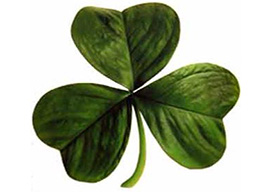
November 24, 2010

Ambitious Irishmen of this period had three career choices: government bureaucrat, priest, or emigrant. Ambitious women had one fewer: nun or nurse. William Trevor has left a portrait of de Valera’s Ireland in his short stories. When I first went to Ireland in the late 1960s it was a poor place indeed. In Dublin I saw children playing barefoot in the street”not a thing you would see in any other northern European capital then.
Entry into the E.U.”at that time called “the Common Market””in 1973 began to change things. The Irish seem always to have had a yen to belong to something big and international. The Catholic Church satisfied most of that yen, but never all. Taking my wife on a tour of the U.N. building in 1987, I was not very surprised to find that our tour guide was Irish.
The Church’s influence had been declining for years before 1973. (Mary Kenny blames the introduction of TV to the Republic in 1961.) There was therefore a cultural as well as an economic gap to fill. The E.U. filled it. The euro’s adoption in 2002, at the height of the “Celtic Tiger” boom, completed the integration process.
A nation’s personality is a mighty hard thing to shift, though. If there has been a constant theme in Irish life from the earliest records down to the present day, it has been the contrast between the bookish spirituality of Ireland’s best minds and the crude barbarism of Irish civil life. Medieval Ireland’s saints “n” scholars could practice their saintliness and scholarship only by getting as far away as possible from the feuding, cattle-rustling warlords. This was not an option for modern Ireland’s entrepreneurs, who were squeezed between the Euro-Hiberno bureaucracy’s busybodies and the Anglosphere’s most corrupt and cynical political class.
The result was that a true patriotic entrepreneurship never developed when the opportunities were maximal. The Celtic Tiger was fed by big globalized firms indifferent to the fortunes of the nations in which they planted themselves. It was also being fed by Eurocrats who were, at heart, equally indifferent, even when Irish themselves. Commitment to big international things is hard to square with patriotism. (A disproportionate number of Ireland’s greatest patriots were not Catholic.)
Without that base of a patriotic, entrepreneurial bourgeoisie, Ireland’s economic success was a hollow thing. The multinationals drifted away in search of cheaper labor and the property bubble burst, leaving Irish banks with “¬60 billion in bad debts, and the euro fell on hard times. Radical surgery on the nation’s bloated public sector has not been enough. The wild geese are taking wing again, and the Irish economy is reduced to a choice of rescuers: the E.U., the I.M.F., or”oh, the humiliation!”Britain.
Bismarck also said: “Whoever speaks of Europe is wrong; it is a geographical expression.”